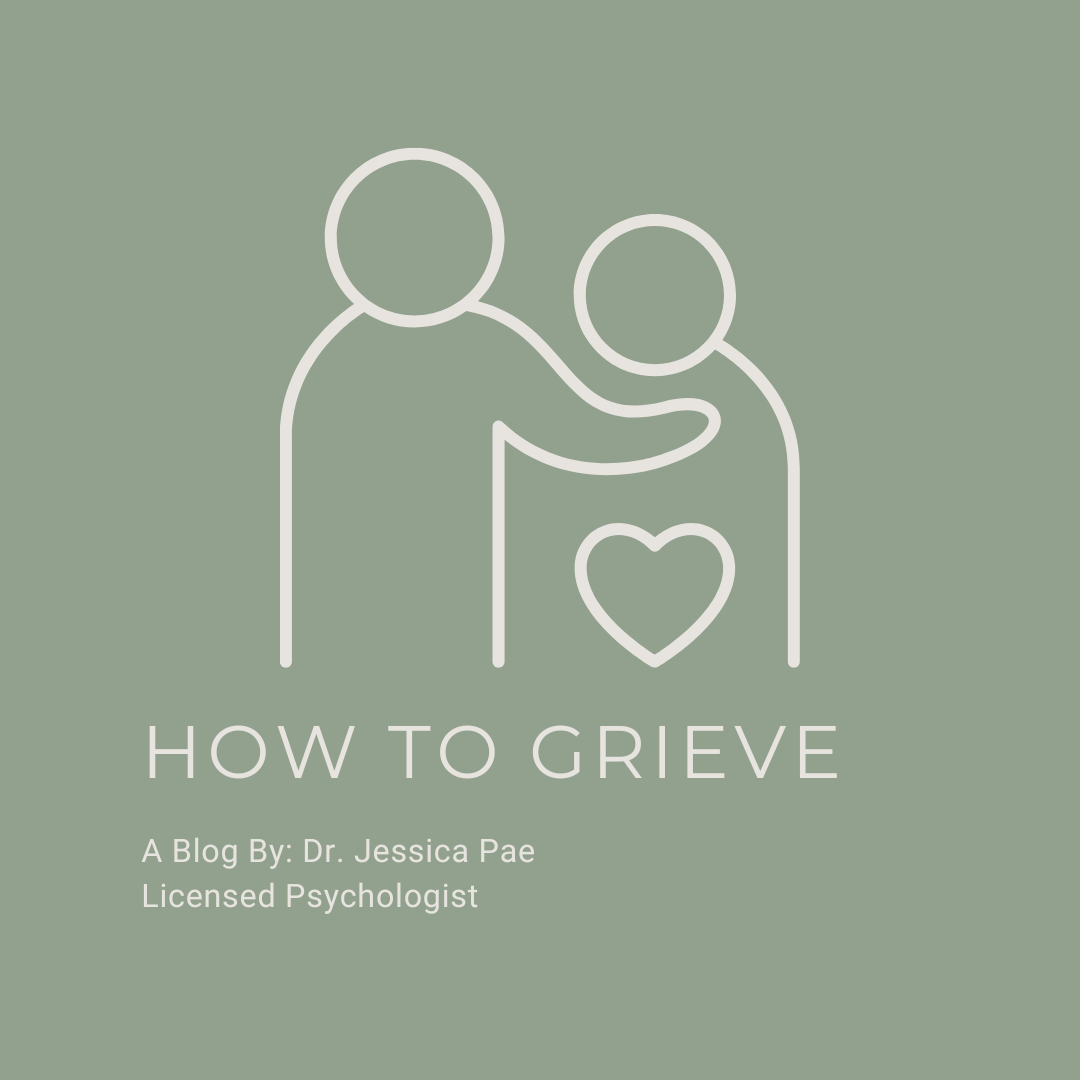How to Grieve: A Guide from a Mental Health Perspective
By Dr. Jessica Pae, Psy.D

How to Grieve: A Guide from a Mental Health Perspective
In light of National Grief Awareness Day we wanted to share some tips to grieve. Grief is a deeply personal and often painful experience that touches everyone at some point in life. Whether we’ve lost a loved one, a relationship, a sense of identity, or even a dream for the future, grief is a natural human response to loss. As mental health professionals, it’s essential to understand that grief comes in many forms—and that there is no "right" way to grieve.
In this blog, we'll explore the many faces of grief, how it impacts mental health, and ways we can support ourselves and others through it.
Models of Grief: Making Sense of the Process
Grief is not linear, but several models can help us understand the range of responses people may experience:
-
Kübler-Ross’s Five Stages of Grief
Denial, Anger, Bargaining, Depression, Acceptance. Though often quoted, these stages are not sequential and don’t apply to everyone in the same way.
-
Worden’s Tasks of Mourning
A more action-oriented approach:
-
Accept the reality of the loss
-
Process the pain of grief
-
Adjust to a world without the deceased
-
Find an enduring connection while moving forward
-
The Dual Process Model
This model highlights the balance between "loss-oriented" activities (facing the pain) and "restoration-oriented" activities (adjusting to new roles and responsibilities). Grief often involves oscillating between both.
Supporting Mental Health Through Grief
Mental health professionals play a vital role in helping people navigate grief. Here are some key approaches:
-
Normalize the experience. Grief is not a disorder—it's a natural reaction to loss. Let clients know that grief can come in waves, look different for each person, and take time.
-
Provide coping tools. Journaling, mindfulness practices, talking with trusted others, engaging in rituals, or creative expression can all support healing.
-
Watch for warning signs. Persistent hopelessness, suicidal ideation, extreme avoidance, or substance misuse may indicate that grief has evolved into a more serious mental health concern.
Final Thoughts
Grief is not a problem to be fixed—it's an experience to be witnessed, supported, and honored. By understanding the various types of grief and the unique ways they show up in our lives, we can foster compassion for ourselves and others.
If you're grieving, know this: You are not alone. There is no timeline for healing, and your process is valid. Reach out for support when needed—and if you're supporting someone else, remember that your presence can be the most powerful gift.
Go Back